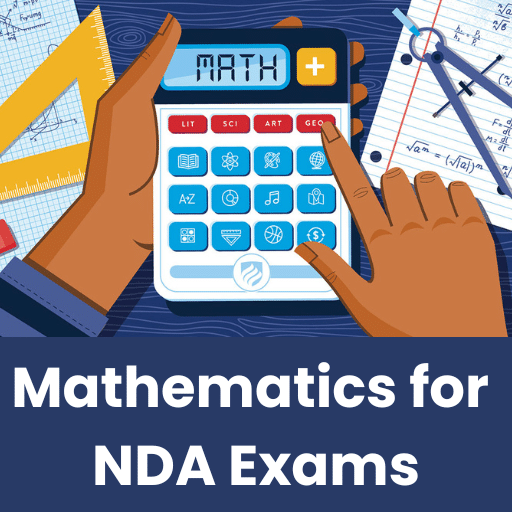NDA Exam preparation at EduRev
1. NDA agreement:
An NDA agreement, also known as a Non-Disclosure Agreement, is a legally binding contract that establishes a confidential relationship between two or more parties. It outlines the terms and conditions under which sensitive information will be shared, and prohibits the recipient from disclosing or using that information for any purpose other than what is specified in the agreement. NDA agreements are commonly used in business transactions, partnerships, and employment relationships to protect valuable intellectual property, trade secrets, and proprietary information.
2. Non-disclosure agreement:
A non-disclosure agreement, or NDA, is a legal document that establishes a confidential relationship between parties involved in a business relationship or transaction. Its primary purpose is to protect sensitive information from being disclosed to unauthorized individuals or competitors. By signing an NDA, parties agree to keep confidential information private and refrain from using it for any purpose other than what is specified in the agreement. Non-disclosure agreements are crucial in safeguarding trade secrets, intellectual property, and other proprietary information.
3. NDA template:
An NDA template is a pre-designed document that serves as a starting point for creating a non-disclosure agreement. It typically includes standard clauses and provisions that are commonly used in NDAs, such as definitions, confidentiality obligations, exclusions, and dispute resolution mechanisms. NDA templates are widely available and can be customized to suit the specific needs of different parties and industries. Using a template can save time and ensure that all essential elements are included in the agreement.
4. NDA form:
An NDA form is a standardized document that parties can use to create a non-disclosure agreement quickly. It usually consists of fillable fields where parties can input their names, addresses, and other relevant information, as well as checkboxes or options to select the desired clauses and provisions. NDA forms are readily available online and can be downloaded, completed, and signed electronically. They offer a convenient and efficient way to establish a confidential relationship while ensuring compliance with legal requirements.
5. Confidentiality agreement:
A confidentiality agreement, also known as a non-disclosure agreement (NDA), is a legally binding contract that protects sensitive information from being disclosed to unauthorized parties. Confidentiality agreements are commonly used when parties need to share proprietary information, trade secrets, or other valuable data. By signing a confidentiality agreement, the recipient agrees to maintain the confidentiality of the shared information and refrain from using it for any purpose other than what is specified in the agreement. These agreements play a pivotal role in safeguarding confidential information and maintaining competitive advantages.
6. NDA contract:
An NDA contract, or non-disclosure agreement contract, is a legally binding document that establishes the terms and conditions under which parties agree to protect confidential information. It outlines the rights and obligations of each party regarding the use, disclosure, and protection of sensitive information. An NDA contract typically includes provisions regarding the duration of confidentiality, permitted use of the information, dispute resolution, and remedies for breach. By signing an NDA contract, parties ensure the enforcement of confidentiality obligations and mitigate the risks associated with sharing sensitive information.
7. NDA sample:
An NDA sample is a representative example or template of a non-disclosure agreement that parties can use as a reference or starting point when creating their own NDAs. It provides an illustration of the typical clauses and provisions included in such agreements. NDA samples can be beneficial for parties who are unfamiliar with the structure and content of an NDA or need guidance on what information to include. However, it is essential to customize the sample according to the specific needs and requirements of the parties involved.
8. NDA requirements:
NDA requirements refer to the essential elements and provisions that should be included in a non-disclosure agreement to make it legally enforceable and effective. Some common requirements of an NDA include clearly defining the confidential information, specifying the purpose for which the information may be disclosed, outlining the duration of the confidentiality obligation, and including provisions for dispute resolution and remedies in case of a breach. Adhering to these requirements ensures that the NDA adequately protects sensitive information and establishes a solid foundation for a confidential relationship.
9. NDA definition:
An NDA, or non-disclosure agreement, is a legal contract between two or more parties that establishes a confidential relationship. The primary function of an NDA is to protect sensitive information from being shared with unauthorized individuals or competitors. By signing an NDA, parties agree to keep confidential information confidential and refrain from using it for any purpose other than what is specified in the agreement. NDAs are widely used in various industries to safeguard trade secrets, proprietary information, and other valuable data.
10. NDA meaning:
The term NDA stands for non-disclosure agreement. It refers to a legally binding contract that establishes a confidential relationship between parties involved in a business transaction, partnership, or employment relationship. The purpose of an NDA is to protect sensitive information from being disclosed to unauthorized individuals or competitors. By signing an NDA, parties agree to maintain the confidentiality of the shared information and refrain from using it for any purpose other than what is specified in the agreement. The NDA meaning is synonymous with confidentiality agreement and serves as a vital tool in safeguarding valuable information.
11. NDA benefits:
Non-disclosure agreements (NDAs) offer several benefits to parties involved in business transactions or partnerships. Firstly, they provide legal protection for sensitive information, trade secrets, and proprietary data, guarding against unauthorized use or disclosure. NDAs also establish a confidential relationship, fostering trust and facilitating open communication between parties. Additionally, these agreements help maintain a competitive advantage by preventing competitors from gaining access to valuable information. By outlining rights and obligations, NDAs ensure both parties understand and respect the boundaries of confidentiality, promoting a secure and productive collaboration.
12. NDA purpose:
The purpose of a non-disclosure agreement (NDA) is to establish a confidential relationship between two or more parties and protect sensitive information from being disclosed to unauthorized individuals or competitors. NDAs are commonly used in business transactions, partnerships, and employment relationships to safeguard trade secrets, proprietary information, and other valuable data. By clearly defining the terms and conditions under which information can be shared and used, NDAs provide a legal framework that promotes trust, confidentiality, and the secure exchange of information.
13. NDA clauses:
NDA clauses refer to the specific provisions and terms included in a non-disclosure agreement (NDA) that govern the parties' obligations and rights regarding the protection of confidential information. Common clauses in NDAs include definitions of confidential information, exclusions from confidentiality obligations, permitted uses of the information, duration of confidentiality, dispute resolution mechanisms, and remedies for breach. The inclusion of well-drafted and comprehensive clauses ensures that the NDA adequately addresses the parties' concerns and protects sensitive information in a legally enforceable manner.
14. NDA enforceability:
The enforceability of a non-disclosure agreement (NDA) refers to its ability to be legally upheld and enforced by a court of law. To ensure enforceability, an NDA must meet certain requirements, such as being in writing, clearly defining the confidential information, and having consideration or mutual exchange of promises. Additionally, the NDA should include reasonable and specific terms that are not excessively broad or oppressive. The enforceability of an NDA plays a crucial role in protecting sensitive information and providing parties with legal recourse in case of a breach.
15. NDA importance:
Non-disclosure agreements (NDAs) carry significant importance in various business contexts. They provide a legal framework for parties to share sensitive information while maintaining its confidentiality. NDAs protect valuable trade secrets, proprietary data, and intellectual property, preserving a company's competitive advantage. By safeguarding confidential information, NDAs also foster trust and encourage collaboration between parties. Furthermore, NDAs offer legal recourse in case of a breach, ensuring that parties can seek remedies and protect their interests. The importance of NDAs lies in their ability to protect sensitive information and facilitate secure business relationships.
Additional Information about NDA Preparation
NDA Exam Pattern 2024-2025
To start your NDA exam preparation, it is essential to understand the exam pattern.
The NDA exam pattern will help candidates to understand the structure of the NDA Exam question paper and marking scheme.
Students can find the complete detailed explanation of the NDA Exam pattern on EduRev.
It includes details about the exam date, syllabus, language, question paper, and paper analysis.
NDA Syllabus 2024-2025 PDF Download
Access the comprehensive NDA Syllabus for 2024-2025 in PDF format with EduRev.
This valuable resource provides the detailed subject syllabus, exam pattern, and language information for efficient exam preparation.
Students can download and study the syllabus, along with study materials, notes, and recommended best books available on EduRev.
Enhance your preparation with mock tests, sample papers, and question papers for paper analysis.
Additionally, Toppers' notes and coaching assistance are at your disposal to excel in the NDA exam.
Achieve outstanding results and boost your confidence with EduRev's curated videos and preparation tips.
NDA Books
Prepare for the NDA exam with the best books available on EduRev. These books cover the entire syllabus and exam pattern,
ensuring comprehensive preparation. students can access study material, sample papers, and subject-specific notes to enhance their understanding.
EduRev offers coaching support and paper analysis to sharpen exam skills. With mock tests and question papers,
students can practice effectively and gain confidence. Stay updated with the exam date and language requirements for a smooth experience.
Toppers' notes are an additional resource for valuable insights. EduRev's official website provides access to all these resources,
helping you excel in the NDA exam effortlessly.
NDA Study Material and Notes PDF Download
Prepare for the upcoming NDA exam with EduRev's Study Material and Notes in PDF format.
Access a comprehensive collection of subject-specific study materials and notes to cover the entire syllabus.
These resources are designed to aid your preparation, ensuring a thorough understanding of the exam pattern, language, and syllabus.
Boost your confidence with practice papers and question papers for paper analysis. EduRev offers coaching support and toppers' notes to excel in the NDA exam.
Download the study material and notes from EduRev's official website and embark on a successful preparation journey.
NDA Previous Year Papers
NDA Previous Year Papers by EduRev provide valuable resources for exam preparation.
Access question papers, paper analysis, and practice papers to understand the exam pattern and syllabus thoroughly.
Enhance your preparation with best books, study materials, and toppers' notes.
Stay updated with the latest exam date and official website information. Utilize mock tests and sample papers to practice in the exam language.
Boost your performance with insightful preparation tips and coaching videos.
Ace the NDA exam confidently with EduRev's comprehensive study material and expert guidance. Prepare effectively and excel in your upcoming exam.
Important Questions for NDA
Get ready to ace the NDA exam with a focus on important questions.
These questions give valuable insights into the exam's format and difficulty, helping you gauge your readiness.
Access various question papers, including sample papers, previous years, and mock tests, to understand the exam's scope.
Analyze these questions to identify patterns and essential topics. Strengthen your knowledge with study material and notes.
EduRev provides an extensive collection of important questions to support your preparation and boost your chances of achieving outstanding results.




![Grid View]()
![List View]()
 (150K+ ratings)
(150K+ ratings)
![]() (150K+ ratings)
(150K+ ratings)
 (150K+ ratings)
(150K+ ratings)














































